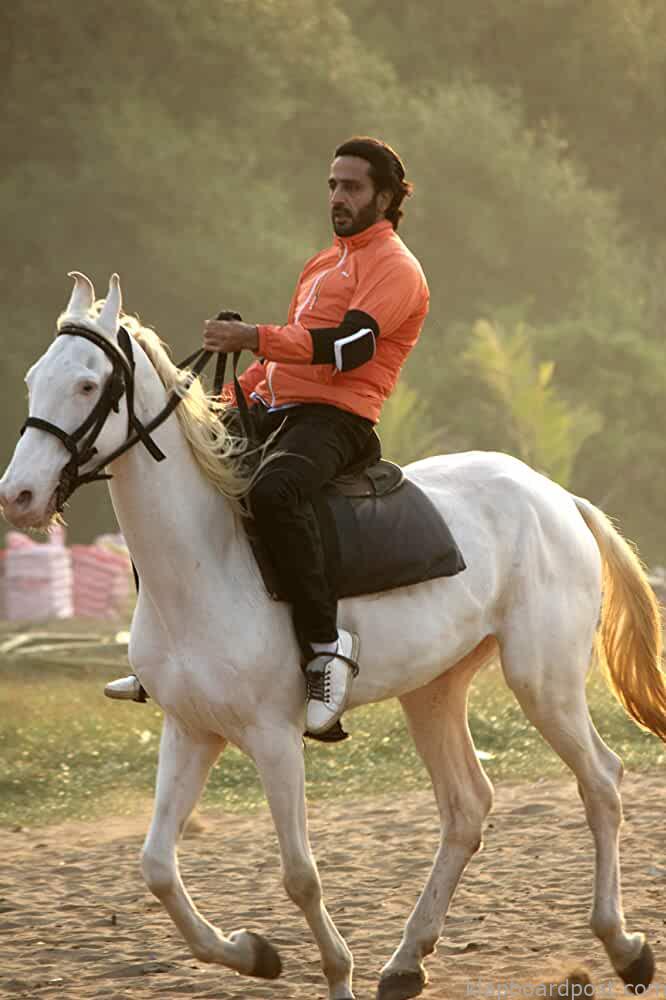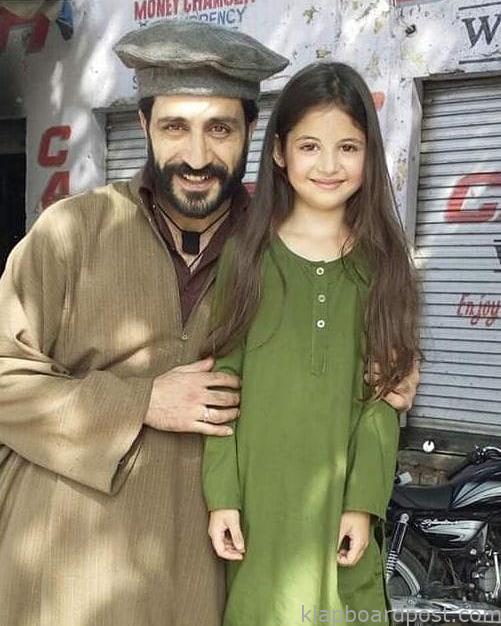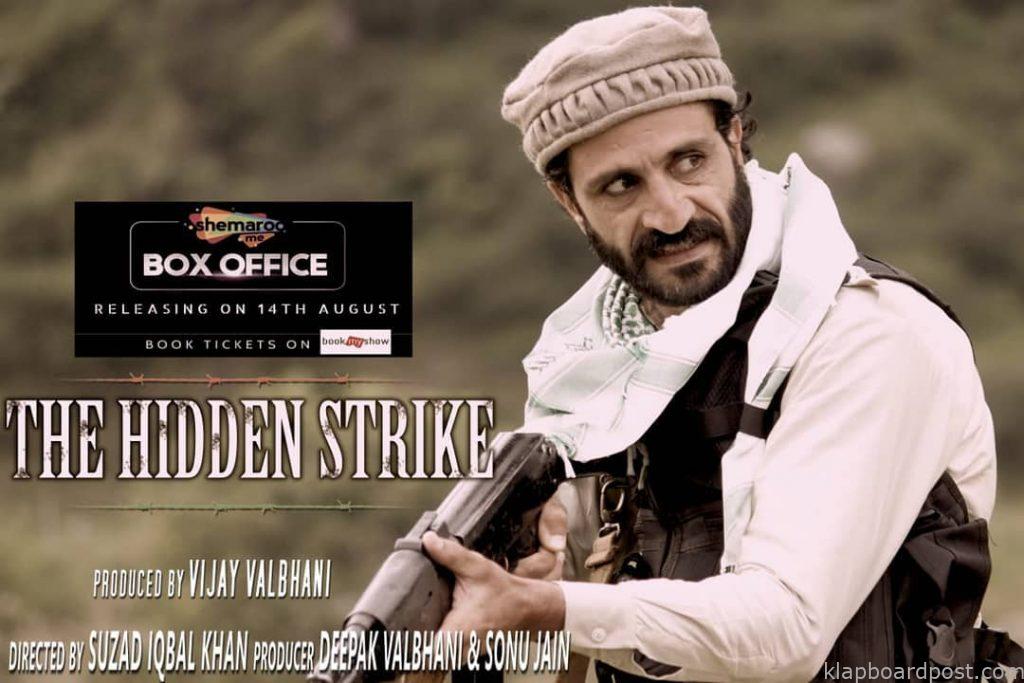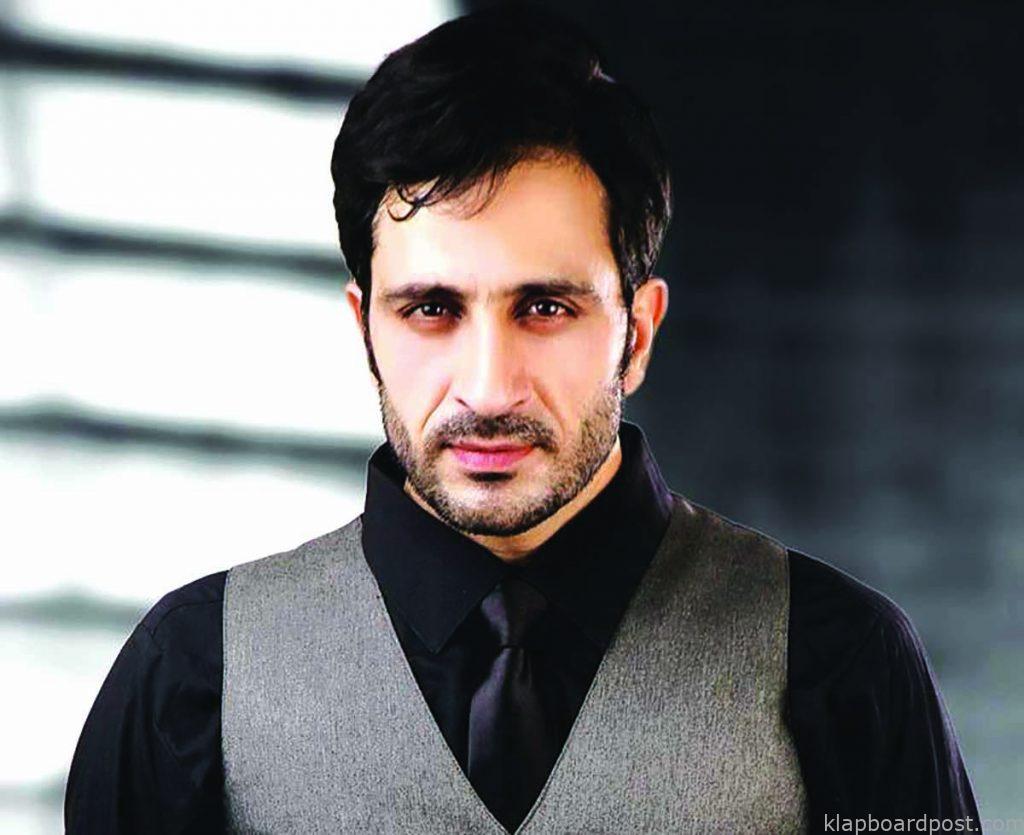Srivathsan Nadadhur
Struggles in life can either make you feel bitter or humble you; actor Mir Sarwar chose the latter. His subdued persona is a stark contrast to the roles he gets to play on the screen. Mir was only some distance away from making a career as a sportsperson, but destiny had something else in store for him. Fitness was a way of life for the handsome actor who took the modelling route to enter theatre, make a mark on television and later found his feet in the film industry in a slew of projects like Bajrangi Bhaijaan, Phantom, Kaatru Veliyidai, Kesari, Kedarnath and Vishwaroopam to name a few.
Regardless of the medium, television, OTT or films, he’s the most sought out actor for stories concerning espionage, events of national significance and plots set in and around Jammu and Kashmir. He has lent authenticity to the portrayal of Kashmir through his many roles, and makes it a point to alter his look from project to project. A keen observer of life, it’s photography that fascinates him beyond sports, fitness and acting. Mir, in a chat with Klapboardpost.com, says that he is hopeful that audience would take time to rekindle their patriotic side to watch his latest release, The Hidden Strike, that is streaming on ShemarooMe Box Office.
Leading a childhood amid political turmoil

Growing up in Srinagar was certainly different from what other children would have experienced in another part of the country. There was political disturbance at a very early age of my life. My school life was regularly disturbed; it was not normal at all. We had to get down from buses, undergo checking, come home, stay indoors and couldn’t go out to play. Other than that, my childhood was wonderful. I was an active child; the children who go to school these days don’t even have 5% of the activities we had back then. We used to head out for family outings and many school events in the 80s (when I was relatively young), though things in the State took a turn for the worse in the early 90s. However, normalcy set in around 1995 and later, when we were teenagers and went biking, mountaineering, hiking, played water sports in some of the most beautiful places here.
Tryst with karate and martial arts
Martial arts was always a passion and my tryst with it began in 1993. Somewhere down the line, we used to get inspired by Bruce Lee and practice it at home. It was difficult to learn because there were barely a couple of trainers in the city and it wasn’t widely accepted. I was lying to my parents that I was going to additional tuition to learn martial arts. Now, the urban part of the State has more or less accepted it as a form of a career, but the rural parts don’t view it that way. I wanted to learn it somehow and I kept at it for a long time. I was among the few people who were doing martial arts properly in Kashmir and got trained in it in Manipur in the later part of my life too.
I also happened to be the first trained Karate instructor in J&K. I never took it up as a career because I was destined to be something else, be a part of the film industry. I was a national gold medalist and even got a government job in J&K for it, but left everything behind for my passion for acting. When the chips were down during my struggling years, there was an element of regret and I used to think ‘chod kyun diya? I should’ve done it’. It’s a phase everyone goes through and I had seen a lot of highs and lows in life, but thankfully God has been kind and everything has paid off.
Observing the life of army men and playing their roles in films later
Everything you go through in life, whatever you observe, you learn from it. I wasn’t only exposed to the life of the servicemen during the turmoil in the State but during my younger years too, we had rented one of our houses to an army man. I remember interacting with him and meeting such people from many parts of the country, talking to their families, observing them as they went to work with the uniform. I have developed a fascination for photography off late and have captured many images of cultural, political, events of the defence sector. All these experiences certainly came in handy as I played an army officer in films.
Importance of physical fitness in an actor’s journey
Physical fitness won’t make you a better actor, it’ll make you a better product. We have to ultimately sell ourselves. Fitness can go a long way in helping in your personal life. If you work on your fitness today, your body will take care of you later. The six-pack abs have become a fad now but you need to have a healthy brain to become a good actor. You need to be balanced – physically, mentally and spiritually. If you take charge of it, you’ll be able to understand the periphery of the character. If you’re alert, aware and have the skill, you can understand the nuances of the performances.
Handling lows and staying firm
I knew it was a long journey and I had to take one step at a time. There was not going to be any leap and I had to start from the grass-root level. People call it a struggling phase, I call it a journey, it’s a process that helps you grow, be it sports, modelling, theatre, television and later films. Every few years, there was progress from a nobody to a somebody. It’s difficult, no doubt about it. Stay focused, that’s the best you can do and the most important thing is to work on your skills. No matter how financially strong you’re, you don’t succeed without skill. People may be outsider or come with a silver spoon but your skills help you progress. It’s still a learning process and the day you stop learning, that’s the end of everything.
Life after Bajrangi Bhaijaan

I was a teenager when I started as a model in Delhi, my work in sports, efforts towards fitness worked in my favour. My choice of clothes and physique helped in modelling and theatre. A corporate stint happened later, but Bajrangi Bhaijaan was the turning point. I was actively doing television serials, corporate commercials, ads before. When I was working in Kashmir for a serial, the team liked my work and look; I came to do one serial but left doing 14 of them in one and a half years. It made me a star in Jammu and Kashmir. I was nothing when I came to Mumbai and started afresh. Bajrangi Bhaijaan changed everything and was loved by everyone who watched it. It became very easy for people to identify with me because I played the protagonist Munni’s father.
On being part of two projects related to surgical strikes
It’s always good to be part of stories that discuss events of national significance and contribute to them in whatever little way I can. Interestingly, I was part of two stories that had a different take on the same event (surgical strikes) – Avrodh and The Hidden Strike. The former was a positive character who was helping a journalist and here, I am playing the lead negative character (in The Hidden Strike). As an actor, it’s important to believe in the character I do and that’s where authenticity comes from.

When you play a negative character in a film with patriotic undertones, there’s a set of audience that may like you and may not like you too. It’s the writer and director who’re captains of the ship and you have to adhere to their vision. It was wonderful to be part of The Hidden Strike, I hope people like it. It was shot in extremely difficult conditions in Jammu and Kashmir in places where there was no network for over 10 days. It gave us a good time to bond as a team. Though I was the bad guy on screen, there was only bonhomie off the screen.
On being chosen to play negative roles more often than not
Nobody chooses to do negative roles regularly. For those who don’t come from the industry, we can’t say no to whatever comes our way. It’s a matter of survival. In my case, I had to leave everything for acting and it’s not right to pick and choose characters that I want or wouldn’t want to do. After getting prominent characters in Bajrangi Bhaijaan (as Munni’s dad) and Phantom (lead negative role), I might not have done many films if I was financially strong. Even if it is a scene or two, you need to make the chance count and create a mark. Somewhere, negative roles are a comfort zone for me. I am a very soft-spoken and simple man and never abuse. Whenever you play negative roles, it helps release many latent thoughts and I vent it out. You do get stereotyped with it, of course.
The vibes of a digital release
It’s a mixed feeling to have a digital release in this kind of situation. More people will certainly watch The Hidden Strike on a streaming platform (like ShemarooMe Box Office) than the theatres. I think people have enough time right now and they need content. No one is in a position to step out excepting those who live in the villages and can move around in the fields. I just left Mumbai, after having been confined to my room for four and a half months. It wasn’t easy at all.

Most of the people restricted to their households with a good internet connection will watch it. People look forward to patriotic content in and around an occasion like Independence Day. For film buffs, The Hidden Strike will offer a unique take on the surgical strikes; there’s rawness, there are no graphics or foreign locales. The theatrical experience can’t happen on mobiles, but there’s no other option and one needs to go with the flow – it’s all for the good.
Being part of popular digital shows like The Family Man, Special Ops, Bose: Dead or Alive
Every project helps you learn from the role and the atmosphere you work amidst, the people you associate with, from their struggles and the journeys. Everybody has taken a lot of time to reach where they are currently; one just has to be observant enough. You tend to learn more by observing them than acting in a film or a serial. Whatever we see around us is life and we need to enact the same in front of the camera. From every director, co-actor, I’ve done my best to learn from them.
Donning different looks project after project and not being recognised
There are pros and cons of donning different looks in every project and not be identified for what you do. It’s good for an actor that the viewer sees only the character and doesn’t identify me in the film/show. It’s also an advantage because I won’t get typecast in terms of my looks. Many didn’t recognise me in Jagga Jaasos because I was clean-shaven; the same goes for Aiyaary. It’s this variety that has kept me going and also got me my first film. I’ve just tried to keep myself fit, take care of myself and the genes help too. You can’t take credit for everything, rest is all upto the almighty.













